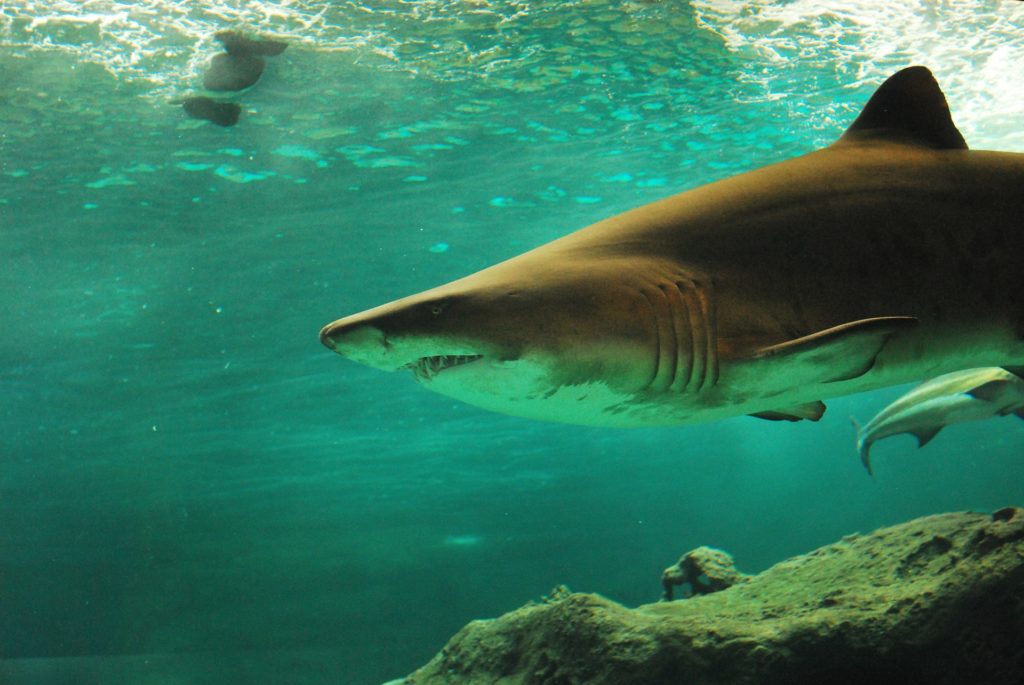Released today, the 2016 WWF Living Planet Report, written in conjunction with the Zoological Society of London, says wildlife populations are set to continue their dramatic decline, ending with only 1/3 f of the species populations of 1970. Yikes! This study proves that humans are the direct cause of the decline and that some areas are harder hit than others.
For example, freshwater ecosystems have declined by 81% since 1970, and includes species at risk such as Atlantic salmon, sturgeon, freshwater mussels and several turtle species.
In the ocean, (which is super important because it produces over half of the world’s oxygen), saltwater species have declined by over 1/3 mainly due to overexploitation, habitat loss and climate change. According to the report, 1/3 of current fish stocks are harvested at unsustainable levels, which could lead to near extinction for some species, reenacting the historical crash of cod stocks in Newfoundland in the 1980s. #WillWeEverLearn?
The report also talks about the dramatic effects on the arctic because of rising temperatures, and how habitat loss and climate change are affecting land mammal populations.
But, luckily, there are some things you and your business can do to avoid all this “doom and gloom”. I know it’s hard to read through all the scary facts and figures, but if you’ve made it this far, good for you! You must be ready to take action.
Here are 7 things you can do in your business to step up to the challenge of reversing this global wildlife decline:
- SIGN SOME PETITIONS. You may not think this makes much of a difference, but it really does. Send around a few links to all your employees and guests. Can you imagine contributing 10, 20 or even 100 signatures to a petition or pledge to protect Lancaster Sound from industrial development, defending specific species like the Lobos (what’s a Lobo?), or take a pledge to support Boreal Forests or the B.I.R.D Initiative? This can make all the difference for these important causes. And there’s thousands of them out there. Find some that make sense to your organization to support.
- UPDATE POLICIES TO PROTECT NATURE FIRST. The WWF and many other environmental organizations have done a lot of the work for you to get recommendation letters ready that address gaps in current government policy. Read them, support them, share them and send them to your local Members of Parliament.
- ENGAGE IN COMMUNITY BASED ENVIRONMENTAL MONITORING. In most communities there are organizations that conduct annual bird counts, fish counts and water flow measuring activities. Find a way to get your work team involved though volunteering, or start your own way of monitoring based on some of the ideas in this report Realizing the Potential of Community Based Monitoring in Assessing the Health of Our Waters (September 2016).
- REDUCE YOUR CARBON FOOTPRINT. Tighten up efficiencies for everything in your business that uses energy such as the lighting, HVAC systems, equipment and vehicles. Get more efficient models and change behaviour to avoid consuming energy as much as possible. If you want help purchasing the products to implement some of these carbon reducing projects, check out www.ecobasecertified.ca.
- SUPPORT RENEWABLE ENERGY. Your business can do this in many ways: It could mean buying electric cars when it’s time to upgrade your fleet, or installing electric charging stations for guests. It could also mean purchasing renewable energy credits from Bullfrog Power to offset your electricity use with renewable energy, or buying carbon offsets that support renewable energy projects. Just make sure you are supporting habitat friendly renewable energy. You can also install you own wind, solar or geothermal energy systems. Whatever you want to do, make a plan and work towards shifting your energy use towards eliminating all fossil fuels in the next decade.
- UPGRADE YOUR PURCHASING POLICY. What you buy and from where really matters. You could be buying beef that supports slash and burn agricultural practices (habitat loss), bottled water, (which supports the fossil fuel industry through plastic production and transportation) or fish that is being harvested unsustainably or illegally. Read Sustainable Purchasing: What you Need to Know before you start making any changes.
- MAKE SOME DONATIONS. There are environmental groups out there that never stop fighting 365 days of the year (well, they probably take Christmas off…). Many of our customers already contribute to organizations like 1% for the Planet, World Wildlife Fund, Canadian Wildlife Federation, Centre for Whale Research, Pacific Salmon Foundation, and we encourage you to pop into your local salmon hatchery or wildlife and water conservation program and donate/volunteer locally.
We can all agree that we only have one earth, and the species populations that are drastically declining are not doing so at their own free will. It is up to us humans to change our ways and stand up for them, before it’s too late.
For more ways to take action, visit http://www.wwf.ca.
If you liked this article, you may also like Be Inspired! What’s Green About Best Western Plus Kelowna Hotel and Suites, or How to be Eco Friendly on Vacation.

